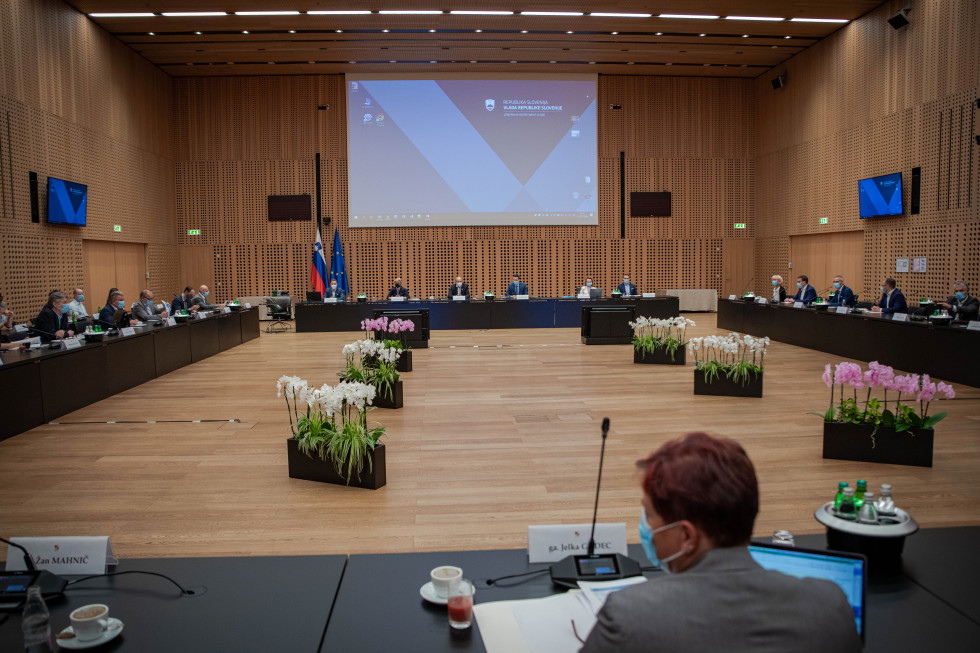Working consultation of the Government
After successfully concluding negotiations and securing EUR 10.5 billion in funds for Slovenia, the Government today held a working consultation on the absorption of funding. The Government first took note of Slovenia's absorption of funds from the 2014–2020 EU budget, which stands at a low rate of 39%. This year, its absorption rate is again extremely low. By 30 June 2020, Slovenia had absorbed only 16% of funding, significant progress being recorded only from March onwards. Approximately 40 new support decisions in the total amount of EUR 260 million have been issued, of which EUR 152 million for "COVID-19 operations". A presentation on the topic was made by the Ministry of the Environment and Spatial Planning that has 62 projects in the total amount of EUR 294 million under the Agreements for the development of regions mechanism: 46 sewerage systems and 16 plumbing systems. Between 2017 and March 2020, the Government Office for Development and European Cohesion Policy did not receive a single application for approval. Six support decisions in the amount of EUR 36 million were issued between March and June.
All previous data therefore show that the Government will have to devote particular attention to the absorption of funds secured in the recent negotiations. The majority of this funding will have to be used in the following three years. In total, more than EUR 1.5 billion is envisaged for 2021, nearly EUR 1.4 billion for 2022 and a little less than EUR 1.2 for 2023. Next year, this will mean four times the amount of annual funding Slovenia usually draws. In order to avoid the scenario from previous years when Slovenia failed to draw even its earmarked funding, today's consultation concluded with the decision to establish a special project group whose work will be primarily on the operational level and will be headed by the Government Office for Development and European Cohesion Policy. The group will be responsible mainly for the regular absorption of funds and project management.
The Government also concluded that the current two priorities are healthcare and the long-term care of the elderly, including the construction of new care homes and the modernisation of existing homes, along with securing additional staff.
Mayors and regional development agencies will also be involved in the drafting of the recovery and resilience plan, which is to be considered by the end of August.


